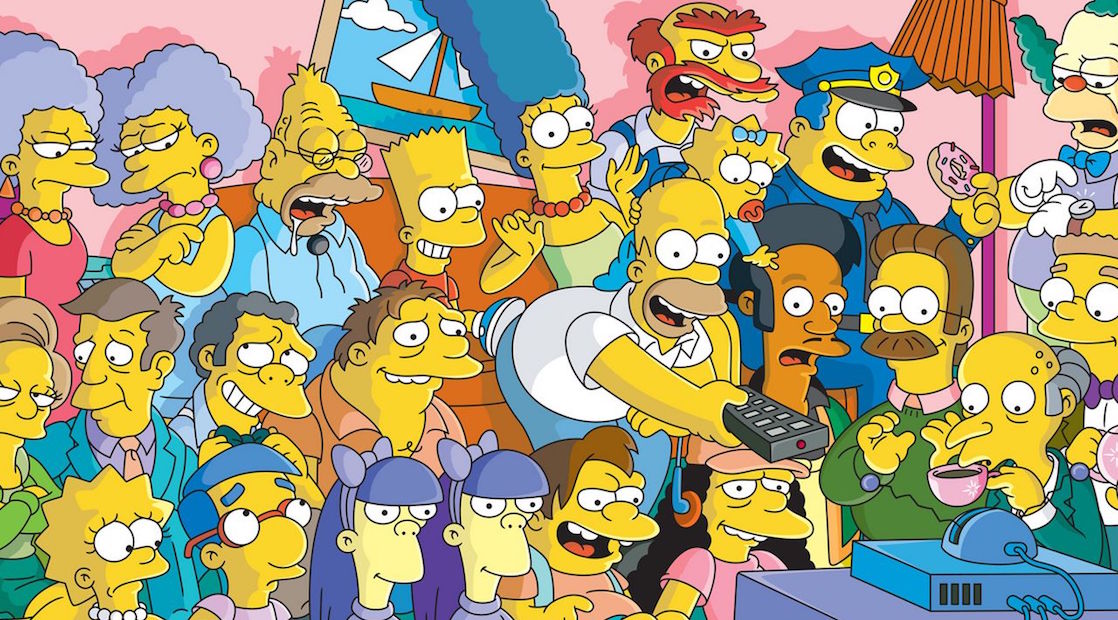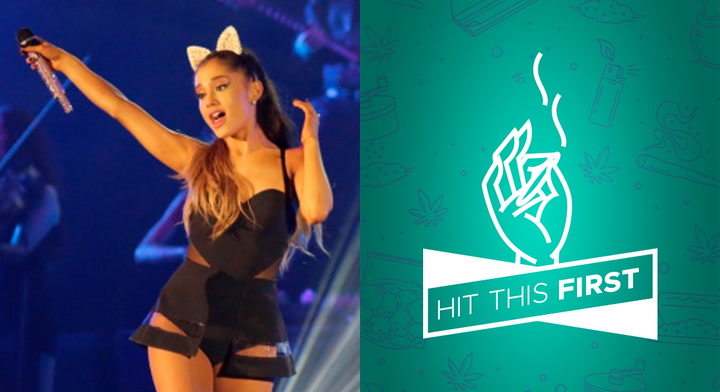PepsiCo, General Mills, Kellogg, Mondelez, and several major US food organizations are using anti-weed scare tactics to push a new federal bill into law, and the consequences may be dire for online stores and marketing platforms.
The bill, called the SHOP SAFE Act, would hold online vendor platforms such as Amazon, Ebay, and Etsy responsible for any knock-offs or counterfeits sold through their networks. In other words, any corporate rightsholder could sue an online marketplace for simply featuring something considered “counterfeit,” regardless of whether the marketplace was aware of the knock-off or not. Second-hand sales of trademarked products may even shut down sites like Craigslist.
But one of the strangest aspects of the SHOP SAFE Act campaign is its focus on supposedly protecting kids from knock-off weed brands.
Last week, the Washington Post (which is owned by Amazon’s founder, Jeff Bezos) opened its story on the bill by detailing cases when kids ingested THC through counterfeit candy brands. MERRY JANE covered many of these knock-off brands in the past, which included packages resembling Nerd Ropes or Sour Patch gummies.
“… in Roy, Utah, five children consumed a candy called Nerds Rope, leaving two of them hospitalized. The package looked just like the popular candy made by Nestlé — but the product contained 400 milligrams of THC, the chemical in marijuana that makes people high. The candy with about 40 times the normal dose used by regular pot smokers was accidentally given out in food boxes to 63 people at the Utah Food Bank,” the Washington Post reported.
The WaPo story continued:
“The U.S. Food and Drug Administration reported 2,362 THC exposure cases from the start of 2021 through this February. Of those exposures, 41 percent involved children. With medical marijuana now legal in 37 states and recreational cannabis legal in 18 states and the District of Columbia, the number of THC- and CBD-infused food and beverage items has exploded.”
OK, so here’s where the story goes wrong. While WaPo cited some figures regarding too much THC consumption, not once did it confirm how many cases resulted from counterfeit brands. Both legit and counterfeit brands got lumped into those figures.
WaPo then stated, “children are increasingly being duped by the use of famous brand logos, characters, trademarks and fonts on edible products containing THC,” without providing evidence that kids were actually being duped. (Sometimes, kids just get into shit they’re not supposed to, like pappy’s liquor cabinet or mom’s cancer sticks.)
Later in the story, Danielle Ompad, an epidemiologist who studied this counterfeit weed brands issue, told WaPo: “… only 8 percent of packages were look-alikes, so it’s not a widespread problem.”
It’s not a widespread problem. Yet the biggest food companies in the US are exploiting this newest version of Reefer Madness to push a federal bill that would, very likely, have far more impactful consequences than simply snuffing out knock-off Nerd Ropes.
First, WaPo, unsurprisingly, did not provide any balance to its story. It’s basically a pro-SHOP SAFE Act propaganda piece that pretty much only spotlighted the food industry’s take on the bill.
Digital rights watchdog groups, as well as small business associations, have voiced opposition to the SHOP SAFE Act, namely because the bill is incredibly vague about its definitions of what constitutes a “counterfeit item,” as well as the steps online sellers must take to ensure knock-offs don’t get sold on the platform.
Second, large online retailers such as Amazon and Ebay do not allow THC products of any kind to be sold through their platforms. Licensed cannabis businesses in legal states like California or Colorado cannot sell their wares at these marketplaces. These platforms also remove knock-off weed brands as soon as they receive a user report.
Third, laws already exist that protect copyrights and trademarks from getting jacked by weed companies. Disney, Gorilla Glue, and the Girl Scouts of America have either successfully sued or petitioned to have their trademarks and copyrights protected from unscrupulous pot peddlers.
So, what is the SHOP SAFE Act really for?
According to a letter sent to the US Senate and signed by 26 trademark scholars:
“As we have seen repeatedly over the past two decades, in both the trademark and copyright contexts, rightsowners routinely send illegitimate takedown notices and overclaim their rights. But current law allows services and other recipients of such demands to push back. SHOP SAFE removes the balancing approach of existing law. The SHOP SAFE Act will accelerate misbehavior—with the help of the act’s imprecise definitions for key terms such as ‘counterfeit,’ ‘electronic commerce platform,’ and ‘goods that implicate health and safety.’”
The letter continued:
“Trademark owners will misuse their new and extraordinary powers to broadly restrict legitimate competitive offerings on online marketplaces, such as non-infringing imitators and resellers of used goods. Furthermore, in the face of essentially unmanageable legal liability, online marketplaces would proactively restrict many legitimate marketplace activities. This will especially impact online merchants and the jobs they create.”
This letter was made available nearly two months before WaPo published its story on the SHOP SAFE Act. Why didn’t the news outlet include it in its story?
Now, while this next part is mere speculation, consider that Jeff Bezos, the founder of the world’s largest online marketplace, Amazon, currently owns the Washington Post. Bezos no longer runs Amazon, but he does own 12.7% of the company’s shares, according to Business Insider.
Of course, WaPo never discloses this important conflict-of-interest in its Reefer Madness knock-off story, but the news outlet has avoided disclosing this relationship regarding much bigger stories, too.
If the SHOP SAFE Act becomes law, Amazon may be one of the only online marketplaces that could survive it. Public Knowledge, a non-profit that advocates “for policies that serve the public interest” regarding digital rights and information access, wrote this about the bill:
“The host of new regulations and increased liability created by SHOP SAFE would be catastrophic for competition in e-commerce. This regime would devastate smaller online platforms like Etsy, OfferUp, and other small platforms that allow third-party sellers because it applies to any platform with just $500,000 in sales in the past year—for comparison, Amazon had $364.38 billion in sales in the U.S. last year” [emphasis added].
Public Knowledge continued:
“So, while this bill seems to target tech giants like Amazon, their ample resources for regulatory compliance and deep pockets to fight lawsuits, really makes SHOP SAFE an opportunity to eliminate many of their smaller competitors through legislative games instead of offering better products or services.”
In the past, non-profits, academics, and watchdog groups have always been right about the ultimate consequences of bills like SHOP SAFE. In the late 1990s and later in the 2000s, federal music licensing laws killed small, independent internet radio stations, many of which only streamed music they had permission for.
More recently, FOSTA and SESTA, whose supporters claimed would curb sex trafficking, have actually made it increasingly difficult for law enforcement to track down and prosecute actual sex-trafficking rings. Meanwhile, sites like Craigslist had to shut down their message boards where consenting adults could meet and hangout for hookups, to prevent said websites from being held liable for sex trafficking.
It’s important to remember that free speech protects things like parodies and satire. Logos and characters lampooning trademarks could also become banned at online retailers, even though they’re protected under the First Amendment. Further, rules already exist that prevent THC-rich cannabis products from being sold through retailers like Amazon and Ebay. Meanwhile, online platforms remain relatively immune to speech that is not protected, like threatening violence against minority groups.
As for weed knock-offs, such as fake Nerds Rope, those products aren’t being sold through the big marketplaces. They’re being sold through individual websites with dummy owner info, or they’re marketed at sleazy, shady fake-brands sites that can simply change domain names to remain in business.
Essentially, the SHOP SAFE Act likely has far less to do with protecting kids and consumers and far more with expanding corporate power and eliminating competition from small businesses. And shame on these big companies for, yet again, stigmatizing weed to get it done.
To voice your opposition or support of the SHOP SAFE Act, contact your US senator by clicking here.











